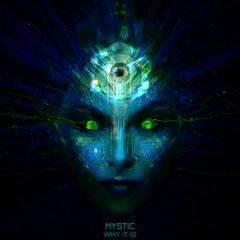It’s just like gravity, man
Astrophysics n Mai Gender Idenninny:
It was by pure chance that I wandered into a bookstore and saw Stephen Hawking’s The Grand Design on the front table. I cannot tell you what inspired me to pick up a book on cosmology. But I did, and in a few short minutes I had discovered a doorway into a new kind of physics—the kind of physics that doesn’t have all the answers, the kind of physics that disagrees with itself, the kind of physics that is messy and chaotic and, God forbid, fun. I changed my major to astrophysics the next week.
Over the following years, I learned about relativity, and how in the right circumstances time itself can slow. I learned about quantum mechanics, where anything can happen. Rules were no longer absolute. Things I had accepted as fact were really just approximations of unknowable truths.

In college, I would also hear the word “transgender” for the first time. I would meet queer folks in loving relationships. It was drastically different from my first brush with queerness—an encounter with a slur on a sign wielded by members of the Westboro Baptist Church, who came to my hometown to demonstrate when I was 13. At the end of college, I would realize that I myself am bisexual—attracted to my own gender as well as others, just as gravity draws every single thing in the universe to every other thing. It felt natural, like I had found a lower energy state of existence. Yet I still wasn’t in my ground state.
That finally happened halfway through graduate school, when I found the label “nonbinary” through friends on Twitter. With its fluidity and disavowal of the traditional two-gender system, nonbinary felt right.
Ah yes the “traditional” two-gender [aka two-sex] system, so quaint, like gentlemen tipping their hats to ladies on the steam train.
It felt like I had spent my whole life trying to solve a chaotic system only to realize there wasn’t one answer, but many. It was then I realized that I am a photon—possessing qualities inherent to either side of the binary, but ultimately belonging to neither.
…
Physics is always evolving, and gender is, too. When we understand that things are more complex than they appear, we learn. When scientists embrace the complexity of the universe, our science can only improve.


This is the sort of thing I’m talking about. He sounds like a fairly smart guy. But the zeitgeist has led him to believe that his true gender is “moron.”
Funny, I was thinking xir was a she.
Yet this person is either a man or a woman with the only sexual orientations (well, with humans, I guess we have to make that clear now) available to him or her is being heterosexual or homosexual or bisexual.
All the rest is just the navel-gazing twaddle of a first-world buffoon.
Except they aren’t rejecting it, they are accepting it. They are only rejecting their place within it. Without the dimorphic nature of humans leading to two sexes, being “non-binary” would be nothing special. In order to be “non-binary”, they have to support the fact that there is a “binary” the rest of us belong to, and that usually involves gender stereotypes, because these “folx” are one sex or the other. They almost certainly know which one.
I’m no physicist, but I don’t think that physics (or the universe) is as freewheeling and inconsistant as he/she/they would like as to believe (on his/her/their sayso). If our understanding of the universe “disagrees with itself,” how is it going to be of use for anything to anyone? It’s not so in “disagreement” with itself, or so messy and chaotic, that we can’t do things like set off hydrogen bombs, or launch spacecraft to the planets. If it were an anything goes universe, the bomb would be as likely to detonate into an explosion of petunias as it would fire and blast wave; our spacecraft would melt into tapioca, or end up in a freezer in somebody’s basement.
No, not really. If “anything can happen” at the scale of things in which we live our lives, living would be absolutely impossible. For anything. I know this person wants to harness the forces of Chaos and Uncertainty in order to be able to claim that sex is a spectrum, and/or that humans can change sex, but I’m not buying it. Wishing will not make it so. Embracing wave/partical duality at the subatomic level is one thing, but quanum indeterminacy doesn’t really have much to do with one’s choice of hair colour, wardrobe or bathroom facility. To think it does is Chopra Level Deepity territory, not physics.
Also, poetic licence or not, they’re a little on the large size to be an electron.
Iknklast:
Yes. The two sexes (male and female) as I see them are in an Hegelian dialectical relationship, in which the idea of one immediately calls into being the idea of its opposite, and neither has any meaning on its own. “Disavowal of the traditional two gender system” can mean anything. Hence their (mis) use of the prefix ‘trans,’ meaning ‘beyond,’ with ‘sexual,’ meaning ‘either male or female,’. And so we finish up with ‘beyond (either male or female).’ That is clearly not what the men who would prefer to have been born female and the women who would prefer to have been born male have in mind.
I can’t help recalling that line from The Rocky Horror Show where whatshisname sings: “I’m a trans-sexual transvestite from Transylvania.!”
‘Except they aren’t rejecting it, they are accepting it. They are only rejecting their place within it.’
Yes, exactly.
This article came up on Ovarit, and I pointed out that (with the exception of racking up ‘diversity points’ and possibly getting attention/notoriety from colleagues and seniors) this person is basically shooting their future career in science in the foot, as I’m sure we’ve all experienced that the more someone focuses on their ‘gender journey’ the less brainpower they have available to actually think about actual stuff.
Like Not Bruce, I’m not buying it – any of it. I mean, I actually have a physics degree and that’s not how physics works and not how people who understand physics talk – people who got half way through a brief history time maybe – but not someone with a “major in astrophysics”. And how exactly do you switch to a major in Astrophysics? I spent four years of my time on my degree and the closest I got to astrophysics was a first year astronomy course with a bunch of pharmacy students who were taking it because it was easy credit.
Still, special person has special relationship with reality (which is nothing like special relativity).
https://www.youtube.com/watch?v=9CS7j5I6aOc
Also, try running “…quantum mechanics, where anything can happen. Rules were no longer absolute” by an actual physicist. Can we for instance… know both the position and momentum of a given electron with high certainty?
I knew a person that sounded similarly stoned when claiming drugs enabled us to perceive other dimensions, but at least he was open about his stoner talk being fuelled by weed.
I’ve read The Grand Design, and I think this person, at best, did not read it very carefully.
Infidel, I’ve read quite a few physics books, and taken classes (required for my biology major). I suspect this guy is getting his physics information from What the Bleep do we know? or some equivalent piece of woo.
I can sort of understand what the writer is getting at about science.
Obviously your mileage may vary depending on the educational system and particular teachers you had, but for a lot of people, science education consists of being handed a bunch of facts and equations and classification systems that are absolutely Known to be True.
High school physics: “here are some laws, and the equations that flow from them. On the exam you will be expected to remember the right equation, plug the numbers from the problem into them, and provide the correct answer for how long it takes the ball to roll down the (frictionless, of course!) ramp or whatever.”
High school chemistry: “Here’s the periodic table. This is what an ionic bond is. This is what a covalent bond is. Here are some equations for describing some basic chemical reactions. You’ll be tested on things like how many moles of substance X will be produced from X kg of substance A and Y kg of substance B.”
High school biology: “Kingdom, phylum, order, class, genus, species” (I probably got that wrong, it’s been a while)
Even when high school classes pay lip service to science as “a process of discovery,” it doesn’t usually feel that way. Yes, today we’re “doing an experiment,” but it’s the same experiment that millions of students have done for decades. We know what the answer is supposed to be. If we get a strange result, the conclusion is not going to be “wow, we have discovered something new and unexpected,” it’s “my lab partner and I screwed up and did the experiment wrong.”
Again, your mileage may vary. I know we have some educators here who are probably appalled at my description and don’t recognize it as matching their own practice, but I swear I’m not making this up. And I wasn’t a kid who hated high school science; I liked it fine and did quite well. I also understood that of course we weren’t going to be exploring new frontiers in high school. But it definitely felt more like receiving the correct facts and applying the established equations than dealing with actual uncertainty. Compare that to English or even history classes, where you could write an essay that didn’t just repeat what the textbook said — if you spotted some theme in the assigned novel that isn’t usually discussed, but you argued your position well, you could get an A.
So I can imagine someone whose experience of science was what I’m describing, who then reads a book by an actual scientist that talks about all the things science can’t answer yet, and the intriguing possibilities and speculation, and thinking “wow, I didn’t know science could be like that!”
Screechy @#12:
Looking back over a career teaching science all the way to my own student and high school days, I marvel at the enormous ground the student has to cover these days in order to become familiar with the ever-changing perceived basics of the whole field. And the choice appears to be between that and simplifications to the point of absurdity. At the university level, the aim is to become the world authority in some ever-narrowing specialty to the point where, as one academic put it to me, “One knows everything about nothing.”
Some students are self-starters, and with the right encouragement can get in touch with their inner Einstein, and follow a similar path. Some prefer the jug-and-mug approach, where the student is the mug to be filled from the jug (guess who?) But traditional schools and colleges are set up for the latter, not the former approach.
Minor pedantry: balls don’t roll down frictionless ramps; balls slide down frictionless ramps. :-P
Cubes too ;)